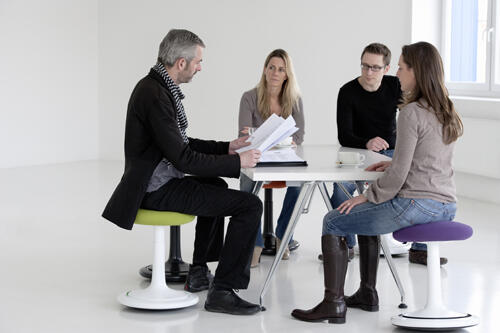The next time you finish your workday and think it has been almost eight hours sitting at the computer without rest may not feel so proud. A study conducted in 54 countries around the world, says that 3.8 percent of all deaths because the company spends more than three hours a day sitting.
Every September begins with a multitude of purposes. One of the good intentions usually do sport and not spend so much time on the couch. 31 percent of the world population does not meet current recommendations for physical activity, according to collect several studies published in 2012 by the journal “The Lancet”.
In addition, lack of exercise is associated with major noncommunicable diseases and deaths related to various causes, because inactivity is behind six percent to nine percent of all deaths in the world.
The current lifestyle influences these figures. In fact, over the past decade research has shown how excessive time spent sitting can increase the risk of death, whether you exercise or not.
Chair’s effects
Now the work, published in “American Journal of Preventive Medicine” and in which participated San Jorge University of Zaragoza, estimated the fraction of deaths attributable to that effect “chair” in the population of 54 countries with data from 2002 to 2011 .
“It is important to reduce sedentary behavior to avoid premature deaths worldwide,” says Leandro Rezende SINC, lead author of the study and a researcher at the University of Sao Paulo (Brazil). “Eliminate the time we’re sitting could increase life expectancy by 0.20 years in the states analyzed,” he stresses.
The results reveal that more than 60 percent of people worldwide spend more than three hours a day sitting -the average in adults is 4.7 hours / day-, and that time is responsible for 3.8 percent of mortality (approximately 433,000 deaths / year). Among the areas studied, there were more deaths in the Western Pacific region, followed by countries in Europe, East Mediterranean, the Americas and Southeast Asia.
Thus, the highest values are found in Lebanon (11.6 percent), the Netherlands (7.6 percent) and Denmark (6.9 percent), while the lowest occur in Mexico (0.6 percent), Myanmar (1.3 percent) and Bhutan (1.6 percent). Spain is in the middle, with 3.7 percent of deaths due to this ‘chair effect’.
The authors estimate that reduce the time you’re sitting about two hours (ie, 50 percent) would result in a decline of 2.3 percent in mortality (three times less), although it can not be said that it is a relationship causal. Even a modest reduction in sitting time, 10 percent or half an hour a day, could have an immediate impact on all-cause mortality (0.6 percent) in the countries evaluated.











